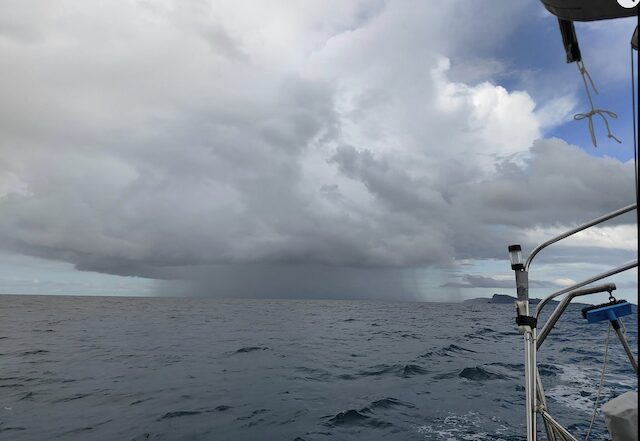Mediterranean Weather Becoming More Unpredictable
Investigations into the sinking of tech entrepreneur Mike Lynch’s superyacht Bayesian at an anchorage off Sicily a year ago have focused largely on the design and construction of the boat and the actions of the crew.
But the immediate cause of the disaster, in which seven people died, was a short, sudden and unpredicted storm with hurricane-force winds reaching more than 60 knots (more than 110kph) that knocked the boat flat, even though it had no sails up, and allowed it to fill so quickly with water that some of the passengers could not escape.
A preliminary British investigation into the sinking of the 56-metre, UK-registered superyacht found that it had “vulnerabilities” making it prone to capsize (at 72 metres the mast was unusually tall and heavy and at the time the boat’s stability was compromised by having the adjustable keel in the raised position). However, Bayesian’s fate is also a stark reminder of how climate change is increasing the intensity of storms at sea and making Mediterranean weather more unpredictable than ever.

“Violent events are always difficult to predict,” says José Miguel Viñas, meteorologist at private weather forecasting platform Meteored, which draws data from the European agency ECMWF. But some of the recent heat anomalies in parts of the Mediterranean are “outrageous”, he says.
An exceptional marine heatwave in the western Mediterranean led to the highest daily sea surface temperatures ever recorded in June for the region as a whole at 27C, or 3.7C above average. Atmospheric changes caused by global warming mean there is more energy available over the Mediterranean, Viñas notes.
That energy, he says, contributes to more intense storms. Sailors, yacht designers, shipyards, charterers and insurers have taken note of incidents such as the storm that hit the Bayesian. They say they are taking extra precautions to cope with changes in the global climate and in resulting local weather patterns that may have only just begun to make themselves felt.
Read the full article on the Financial Times website.
…………………………………
If you have found this information useful, become a paid member to enjoy unlimited use of Noonsite plus many other perks. Your membership fees really help our small, dedicated team keep country information up-to-date in support of cruisers worldwide. Find out more about Noonsite Membership levels and benefits.
Subscribe to our FREE monthly newsletter.

